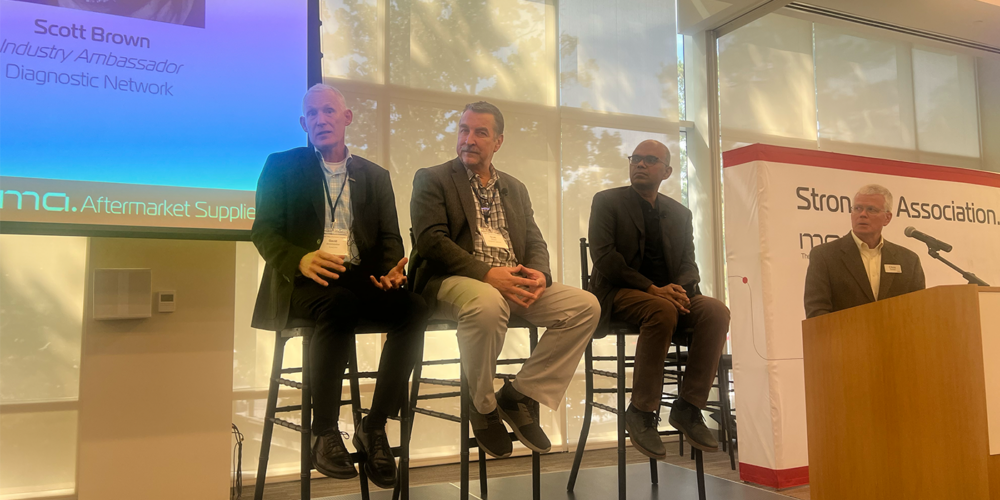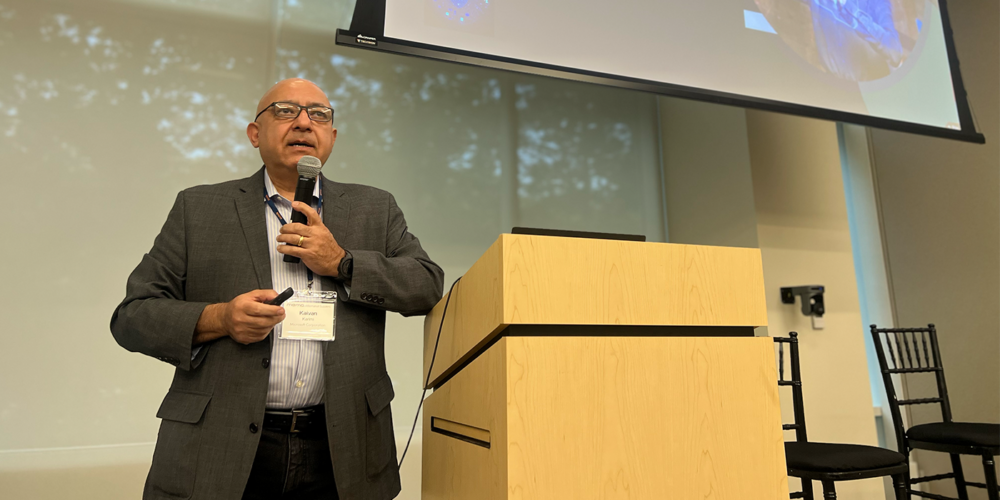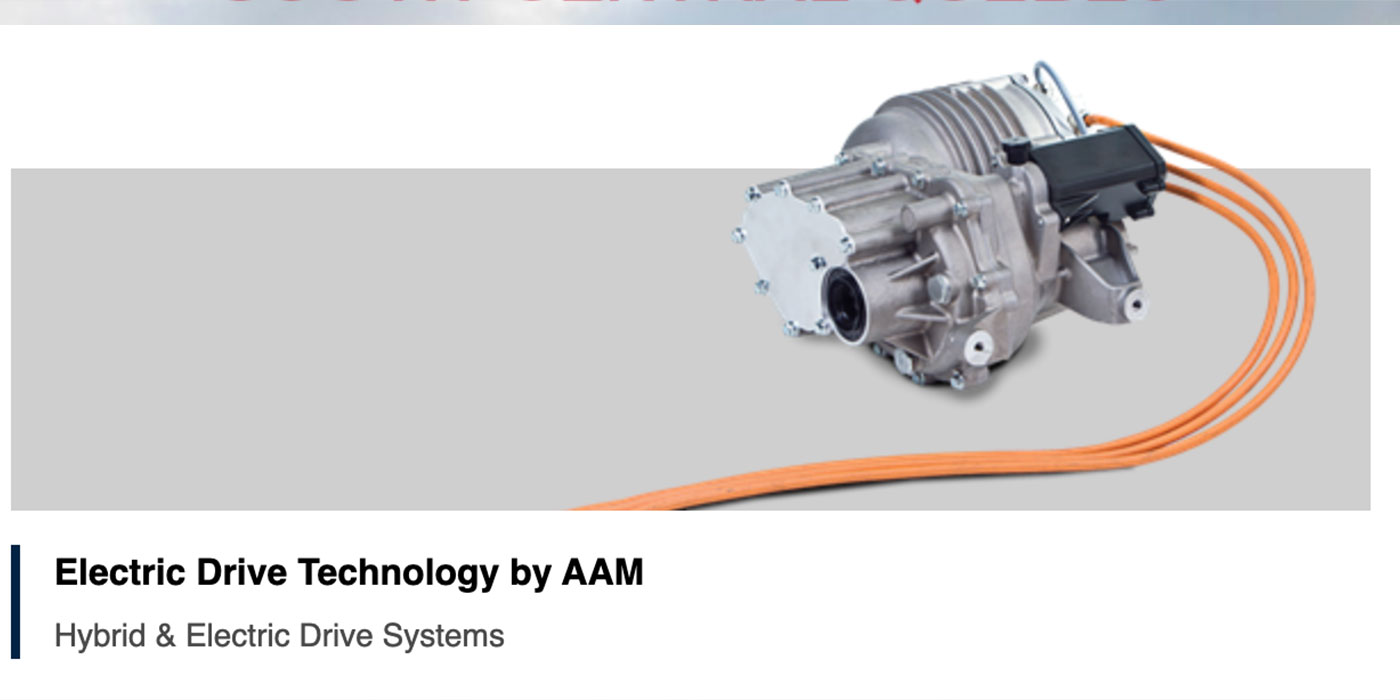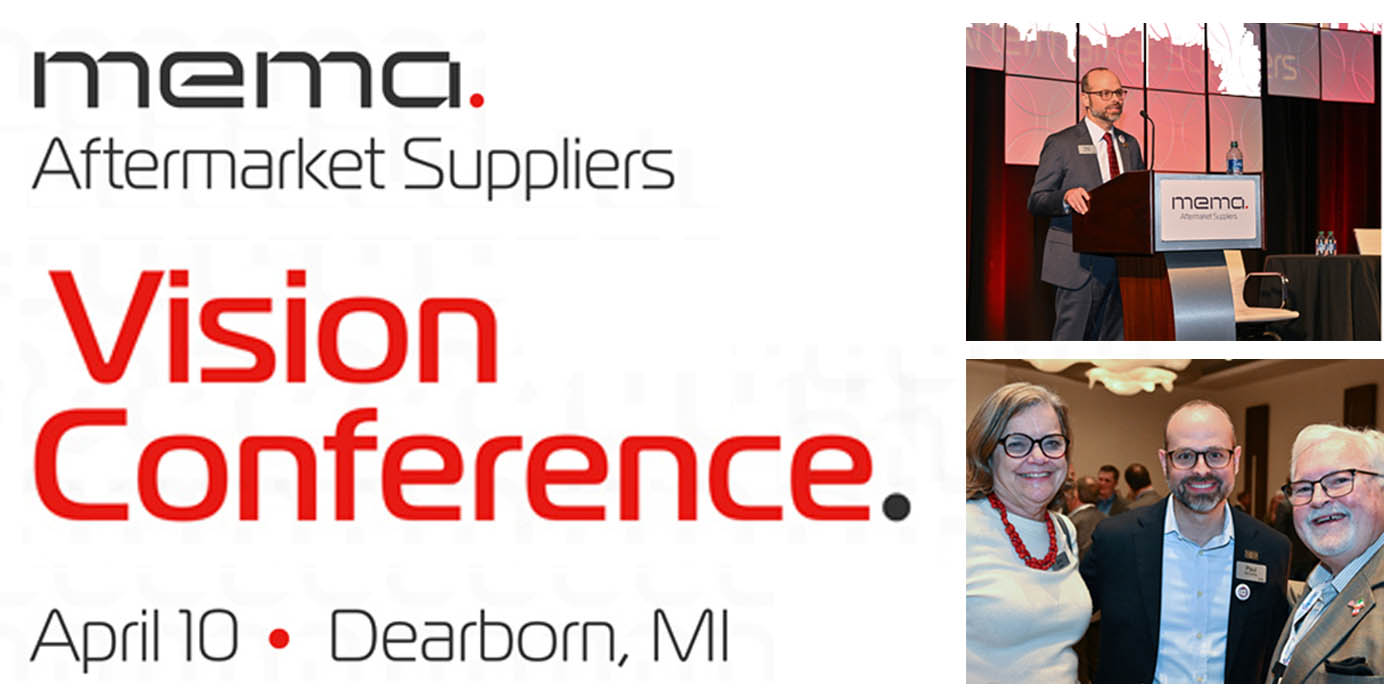In the almost 100 years of the Genuine Parts Company (GPC), parent company NAPA and Motion, it has had five CEOs. You can literally count them on one hand. With that brings “an incredibly consistent, powerful and longstanding culture” of being a solutions-oriented business for customers, said Will Stengel, president and COO of GPC. But, when COVID-19 hit, GPC was forced to rethink its usual strategies for getting the right part to the right customer at the right time. As a result, it underwent a technological revolution.
“I think it’s fair to say any company that’s had success over decades needs to continuously challenge itself to improve,” Stengel told attendees at the MEMA Aftermarket Technology Conference in October. “What COVID did for GPC is prove that we could improve our business model, which we’ve done.”
It started with hiring the right people. In 2021, GPC hired Naveen Krishna as its EVP and CIDO — the first technologist to run GPC’s IT department. Then, Susan Starnes, a former Lowe’s executive, became the company’s first vice president of emerging markets to help create innovative strategies for our business. The next step was to take GPC’s solutions-oriented approach to solving customer problems and apply technology to it.
“All the fundamental elements of our business have a dedicated technology strategy behind it,” Stengel explained during the conference, held at GPC’s headquarters in Atlanta. “That lines up with this whole idea that tech is at the core of what we do and what we want to do.”
GPC is one example of an aftermarket company that is no longer thinking of itself as strictly in the automotive and industrial space. Instead, its focus has shifted to become a technology company in the automotive aftermarket. If you ask Paul McCarthy, president and CEO of MEMA Aftermarket Suppliers, he thinks all companies should adopt that mindset.
“Technology is driving our success, efficiency and our future. This is the reality for the aftermarket. I’m issuing a call to action: a demand for innovation in our industry from suppliers.”
Paul McCarthy
Amid the discussion around technology trends, a common theme that surrounded innovation and efficiency was what we’re calling the buzzword of 2023: artificial intelligence. Like many industries, the automotive aftermarket is delving into AI and ways it can help businesses be more productive and effective as future mobility continues to inch closer to needing aftermarket solutions.
AI Applications in the Aftermarket
Picture this: You know when and where a repair is going to happen and can get the part that technician needs to the shop before the vehicle comes in for service. That is just one example of how AI can make our industry more efficient. But what exactly is AI?
Tilak Kasturi, founder and CEO of Predii, a company that develops automotive-specific AI applications, said AI is the simulation of human intelligence processes by machines on certain business intelligence (BI), such as data, content, reports, etc. It utilizes machine learning, neural networks and natural language processing to do things such as recognize patterns, make decisions and judge like a human.
“BI is aggregated data and analytics, such as market intelligence, sales forecasting, etc.,” he explained. “If you say ‘right time, right part, right place,’ that is BI, but ‘right part, right place, ahead of time’ is AI. Knowing beforehand requires some prediction ability.”
David Brondstetter, a 40-year aftermarket veteran and CEO of SureCritic, an AI software that responds to customer reviews for repair shops, added that AI is applying algorithms to a data set to understand what is going to happen in the future. A good example is parts ordering.
“If you’re able to predict that, let’s say an O2 sensor is nearing end of life, you can predictably set an appointment for that customer at the shop, get the part ordered, and then have the customer come in,” he said. “The problem with parts ordering right now is you rely on all these things to happen, and then you assume your customer’s going to
come in.”
Scott Brown, industry ambassador and co-founder of the Diagnostic Network, a digital resource and forum for technicians, said an example of how his company has used AI is in the form of AiDN, an AI-powered assistant. Brown said AiDN will detect a vehicle-specific discussion in a Diagnostic Network forum and will respond like a member of Scott’s team.

“If you think about the deliverable and who it’s being delivered to, it can take an apprentice technician or middle-educated technician and get him started on the right pathway,” Brown said. “We will mature this technology and continue to train it on expert information. We think it will streamline [a technician’s] process of getting to a successful result faster in the future.”
A Long Road Ahead
While companies like Predii, SureCritic, Diagnostic Network and others are implementing AI for various solutions, industry experts say more work needs to be done. For example, access to good industry data, and education around the types of AI to use are critical. Data security and protecting your IP is another issue.
Kaivan Karimi, global partner of strategy and cybersecurity at Microsoft, presented the concept of “responsible AI” at the Technology Conference as a guideline for businesses when experimenting with this technology.
“There is the wild, wild West AI and then there is responsible, curated AI,” he said, adding that responsible AI is setting standards and guardrails around how you’ll use the tool while making sure your data is secure. “AI is a great productivity, tool, but people need to expect a set of standards when using it.”
Knowing the correct AI tools to use comes down to working with companies that specialize in industry data. For example, ChatGPT is not meant for industry-specific data, said Predii’s Kasturi.” It can actually take you to the wrong path,” he said.

When speaking about data and predicting when a part will fail, Right to Repair is at the heart of the aftermarket’s data access troubles. Vehicle telematics data is crucial for building out technology to predict when parts need replaced and the right way for a technician to fix a vehicle.
“We know what the world looks like when there is real repair access,” McCarthy said. “Take the Phillips Connect trailer. Just with your brakes, it can tell you their performance, wear and exactly how much life is left in key components so that you can do the repair before something breaks. But this concept and this positive future is only possible with Right to Repair.”
Cybersecurity is another big issue playing a part in using AI. Microsoft’s Karimi said securing your company’s data in each step can decrease data breaches and cybersecurity attacks.
“You need to protect the factories, the lines, the cars, the enterprise, the network, the backends, the cloud, and then some security operation center at a center that ties the whole thing together,” he said. “Your strengths are only as good as the weakest link.”
McCarthy added that if a Right to Repair law is passed, and safe, open connectivity is achieved, it can expand technology and services and improve forecasting and inventory for all involved along the supply chain. GPC’s Stengel added that for aftermarket companies, any technology—such as AI—must prove to make the industry companies more profitable, in addition to efficient.
“We talk about data, we talk about digital, we talk about the role in which technology serves and improves the customer experience, but, ultimately, it’s got to drive a financial expression for the business, which is growth and operating profitability,” Stengel said.

Industry Jobs of the Future
With an exciting future in technology ahead, aftermarket companies may be forced to rethink roles at their companies. The question on many minds is “Will AI take my job?” The answer might surprise you, Karimi said.
“When I give talks to engineers, and they ask, ‘Am I going to lose my engineering job?’ I say, You may lose your engineering job to another engineer who knows AI. You have to adopt AI as a tool. It’s a massive productivity gain. It’s around to stay.”
As the use of data and AI applications increase, SureCritic’s Brondstetter thinks that data scientists are going to become more prominent in aftermarket organizations.
“Before this rise of generative AI, most of the data scientists were working on normalizing data,” he said. “Now that we’re in a state where we’ve got computing power to handle all this data, these predictive algorithms can normalize the data and data scientists can work on tweaking the model. That’s where you get a real generative AI. I think that position will become more prominent because the core of AI is having data scientists who understand that.”
Predii’s Kasturi said in his experience, automotive data analysts and experienced technicians are critical to ensuring AI’s future in the aftermarket. Skilled technicians, for example, can verify the results of generative AI models.
“I see that as the future where technicians are hands-on, ratchet-and-wrench-type people, but also are powering some of these expert-based systems,” Kasturi said. “They know their data really well. They know their codes, they know their parts, they know the fix.”
Brown agreed, adding that an aging or injured technician can now turn into a triage specialist that takes the AI and vehicle information, and then prepares a repair path plan and assigns it to the other technicians in the shop. “This new generation can hopefully rebirth our service industry,” he added.













